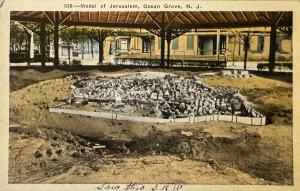 TORONTO — Canadians should accept different cultures in society while standing together as one people, said Rabbi Baruch Frydman-Kohl at the 24th annual Neighbourhood Interfaith Dinner.
TORONTO — Canadians should accept different cultures in society while standing together as one people, said Rabbi Baruch Frydman-Kohl at the 24th annual Neighbourhood Interfaith Dinner.
Liberal MP Bob Rae, left, and Rabbi Baruch Frydman-Kohl
“We must learn to accommodate and recognize distinctiveness [in our society]” he said at the dinner, held on May 6 at Temple Sinai.
“The world has much to learn from the biblical affirmation of being created in the image of God, which gives universal dignity to all,” he said. “ We have to cultivate the dignity of difference, where each of us walks in the path of our particular covenant of faith while we also seek ways to march together.”
The interfaith dinner, which is chaired by Bryan Beauchamp, brings together members of the Jewish, Christian and Muslim communities and aims to open up a dialogue between the communities. Keynote speakers alternate each year to include all three faiths, with the first imam speaking in 2008.
In his address, Rabbi Frydman-Kohl questioned how far a society should go to accommodate different religions and cultures, such as in allowing or prohibiting head covers.
“It seems to me that if [head covers] are prohibited, so would a ski mask in winter,” he said. “Perhaps a reasonable accommodation might be to decide what activities absolutely require positive identification and mandate that only in those circumstances would limited facial exposure be required.”
The rabbi also focused on the moral similarities each religion shares.
“Duty, obligation, sympathy, solidarity, these we share by virtue of our humanity,” he said.
Rabbi Frydman-Kohl spoke alongside Toronto Centre MP Bob Rae, who stressed the importance of connecting as a community.
“I think perhaps, generations ago, we would not have understood how much we are connected. [Now] we can’t turn around and say there is any corner of the globe that is alien to us,” he said. “We can’t say that the devastation which is occurring in the eastern Congo… where over the last 20 years, we estimate that 20 million people have been killed. We can’t say that’s far away anymore.”
Rae went on to speak about the United Nations ‘millennium development goals, which include ending poverty, universal education and combating HIV/AIDS.
“The millennium goals… are not complicated. First of all, we want mothers to be able to give birth to children without dying. We want children to be able to grow up without dying. We want to be able to eliminate the big diseases in the world that are killing people at a great rate,” he said, adding housing and climate change to his list.
“And in every one of these instances, religious faith has something to tell us,” he said.
“We also have to recognize that unless people of different religions can actually talk to one another – religious faith itself has been a source of great conflict,” he said. During his talk, Rae emphasized the importance of events such as the interfaith dinner.
“I suspect when it first started, people lived next door to each other and didn’t really understand – what is it you do on Saturdays and what is it we do on Sundays?” he said.
“The greatest thing we have in this country… is that we have learned to look into the eyes of the other and see something of ourselves, and we know that’s the key to being able to live in peace.”






